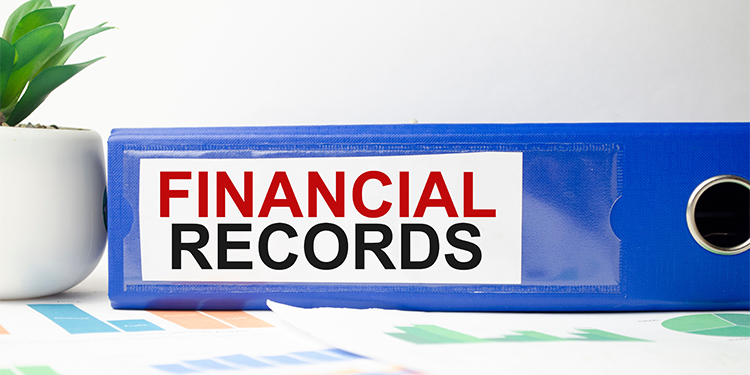
Compiling Financial Records and Necessary Documents When Selling a Business
When it comes to preparing your business for sale, compiling financial records and documentation is a necessary step. Throughout the sale process, your prospective buyer, accompanied by their accountant and legal counsel, will insist on receiving accurate information about your business. Additionally, they will require supporting documentation to verify the strength and overall well-being of your company.
You need to be ready with:
- Professionally produced financial statements, records, and contracts.
- Facts and records that verify the condition of your business.
- Confidentiality is essential throughout the sale process. Be prepared to obtain confidentiality agreements from sale advisers and other confidants.
- Confidentiality agreements to present for signature before divulging facts about your business.
- Business sale agreements and contracts.
Be sure financial statements are produced in accordance with generally accepted accounting principles (GAAP) and that all documents accurately represent the conditions of your business. Work with your financial and legal advisors in advance to make necessary pre-sale adjustments to avoid discrepancies that could be discovered during sale negotiations or due diligence, when they are most apt to upset the deal and most likely to cause price renegotiations and cost you more in legal and accounting fees.
Financial Condition Documentation
A buyer will require a full set of professionally produced financial documents that present the financial condition and financial trends of your business for the current and past several years, along with backup records that support your financial statements. Work with your accountant as you prepare to present the following:
- Financial statements for the year to date and the past two to three years, including income statements, balance sheets and cash flow statements. If your business owns assets you want to exclude from the sale, for instance, your automobile, seek advice from your accountant regarding the possible need to restate your balance sheet prior to the sale, at which time you will probably also remove any cash or investment accounts from the balance sheet, as those won’t be part of the sale.
- Seller’s discretionary earnings (SDE) statements for the past two to three years. Also called an adjusted cash flow statement, the SDE statement recasts the income statement to provide a pro forma estimate of how much the business generates annually for the benefit of its owner.
- Three-year financial trends.
- Financial documentation, including accounts payable and accounts receivable aging reports, and the current ratio, also called the liquidity ratio, of your business.
- Depending on the nature of your business, you may also need to present your inventory turnover rate, which is an indicator of efficiency in manufacturing, distribution, and retail businesses.
- Back-up records that support the accuracy of your financial records, including bank statements and Corporate or Schedule C tax returns.
Business Condition Documentation
You’ll need to assemble the preceding list of financial condition documentation before even listing your business, so that you’ll be ready to meet with prospective buyers. Later, as your sale proceeds to the due diligence and closing phases, you’ll also need the following documentation. Although you can gather it later, be aware of what’s required and begin to assemble the information early-on, so it’s ready when you’ll need it.
- Business formation documents, licenses, registrations, and certifications.
- Partnership or investor agreements, if any.
- Business licenses, certifications, and registrations.
- Professional certifications.
- Intellectual property ownership and valuation documents.
- Inventory list with value details.
- Listings of tangible assets, valuations, and depreciation schedules.
- Building and equipment leases and maintenance agreements.
- Contracts for major clients and for suppliers and distributors.
- Insurance policies.
- Information on outstanding loans and liens.
- Information on business operations including client lists, staffing lists, product and services lists with pricing, organization chart, employment policy manual, business plan, marketing plan, and procedures manual.
Legal Documents Required During the Sale Process
Be prepared with the legal documents you will need during the sale process, including the following:
- A non-disclosure confidentiality agreement (NDA), which sale confidants and prospective buyers will be required to sign before you divulge information about your business and its sale.
- A note for seller financing, which will be required if you plan to accept a portion of the business sale price over time and with interest, a condition that enhances most sale offerings and leads to higher asking-to-closing prices.
- A blank personal financial statement, which the buyer will be required to complete to allow verification of financial capability to make the business purchase.
- An offer-to-purchase agreement, which itemizes the price, assets, terms, and conditions involved in the upcoming sale and clarifies the rights, obligations and responsibilities of the buyer and the seller. This agreement will be developed with advice from your broker or written by your attorney or the buyer’s attorney.
Take this document-compilation step seriously. The initial description of your business that you present in early advertisements, listings, and communications will attract buyer queries, and your personal assurances and explanation will further interest. But it is highly unlikely you will develop purchase intention until you share hard-copy documents presenting provable facts, figures, and financial and operational facts about your business. Be ready when the need arises.
Necessary financial records and business documents include professionally produced financial statements, forms, and contracts; facts and forms that verify business condition; confidentiality agreements; and business sale agreements and contracts. Financial statements should be produced in accordance with generally accepted accounting principles (GAAP) and all documents must accurately represent the conditions of your business.
Browse the BizQuest Broker Directory to find a business broker or M&A advisor who can help you through the process of selling your business.





